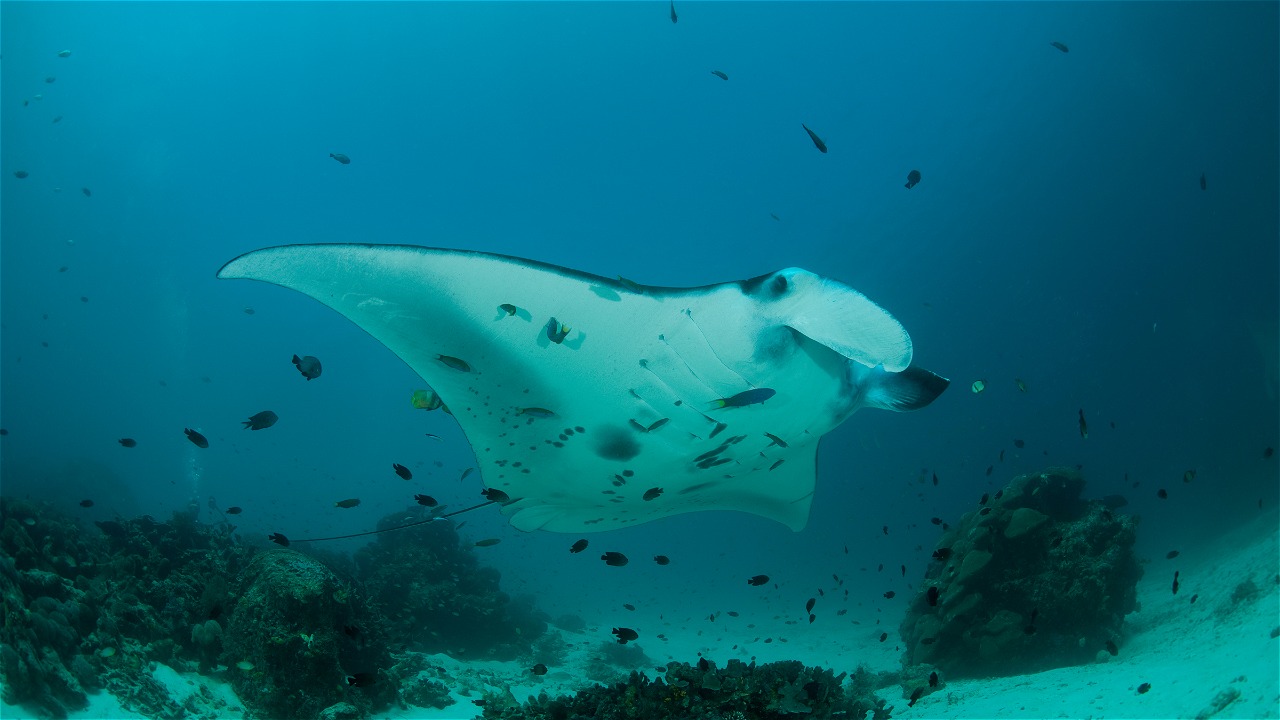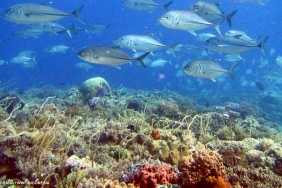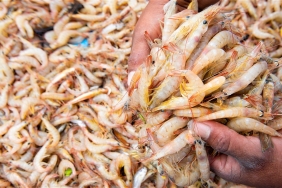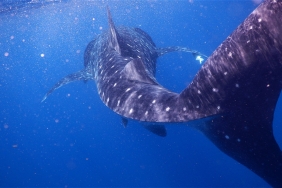SUSTAINABLE MANAGEMENT OF SHARKS AND RAYS IN INDONESIA
Bogor - At the closing ceremony of the Indonesian Sharks and Rays Symposium, a collaboration between WWF-Indonesia and the Ministry of Marine Affairs and Fisheries (KKP) that took place today (11/6) at the Bogor Agricultural University International Convention Center (IPB-ICC), an understanding was reached that a policy needs to be established as the basis for implementing a National Plan of Action (NPOA) for the sustainable management of sharks and rays in Indonesia. The Indonesian Sharks and Rays Symposium, which gathered the results of research by experts in Indonesia related to shark and ray resources, presented several recommendations on the biological, population and ecological; social and economic aspects' and management and conservation of sharks and rays in Indonesia that could be used as the basis for the policy.
Shark and ray management efforts must be carried out in a sustainable manner in order to maintain ocean productivity in providing food sources from the fisheries sector. However, to support these actions, complete data on the population, biology and ecology of the two fish species are needed, which until now are still very minimal and scattered in various parties.
Over the course of two days, the presenters presented the results of their research on the capture of small and juvenile sharks and rays; the discovery of several types of sharks that have been considered rare or even absent in Indonesian waters; the importance of the active role of stakeholders in law enforcement aspects; and the need for community strengthening through the development of ecotourism based on local wisdom and environmental carrying capacity. In addition, aspects of traceability or origin for shark and ray products and their derivatives also play an important role in supporting efforts to sustainably manage sharks and rays in Indonesia.
"We have a lot of work to do in protecting the earth and its contents, including sharks and rays. But this homework cannot be done individually. Therefore, researchers and their research results have an important role to play in shark and ray conservation efforts in Indonesia," explained the Director of Conservation Areas and Fish Species (KKJI), Agus Dermawan, during the opening ceremony of the Indonesian Shark and Ray Symposium which took place yesterday (10/6).
Met at the same location and time, WWF-Indonesia's Coral Triangle Program Director, Wawan Ridwan, said, "WWF-Indonesia is ready to continue working with the government and experts in improving shark and ray management efforts in Indonesia, considering that these two species play an important role in maintaining the health of the marine ecosystem and ensuring that the sea remains productive, contributing to food security from the fisheries sector."
Sharks and rays are widely hunted as main catch or bycatch in several locations in Indonesia such as the Java Sea, Karimata Strait, Makassar Strait, as well as near the Indian Ocean, South China Sea and Pacific Ocean. Both cartilaginous fish are caught and used as high-profit commodities. Sharks are hunted for their fins, meat, skin, liver oil and cartilage, while rays are taken for their gills to be used as ingredients for health tonics in China.





